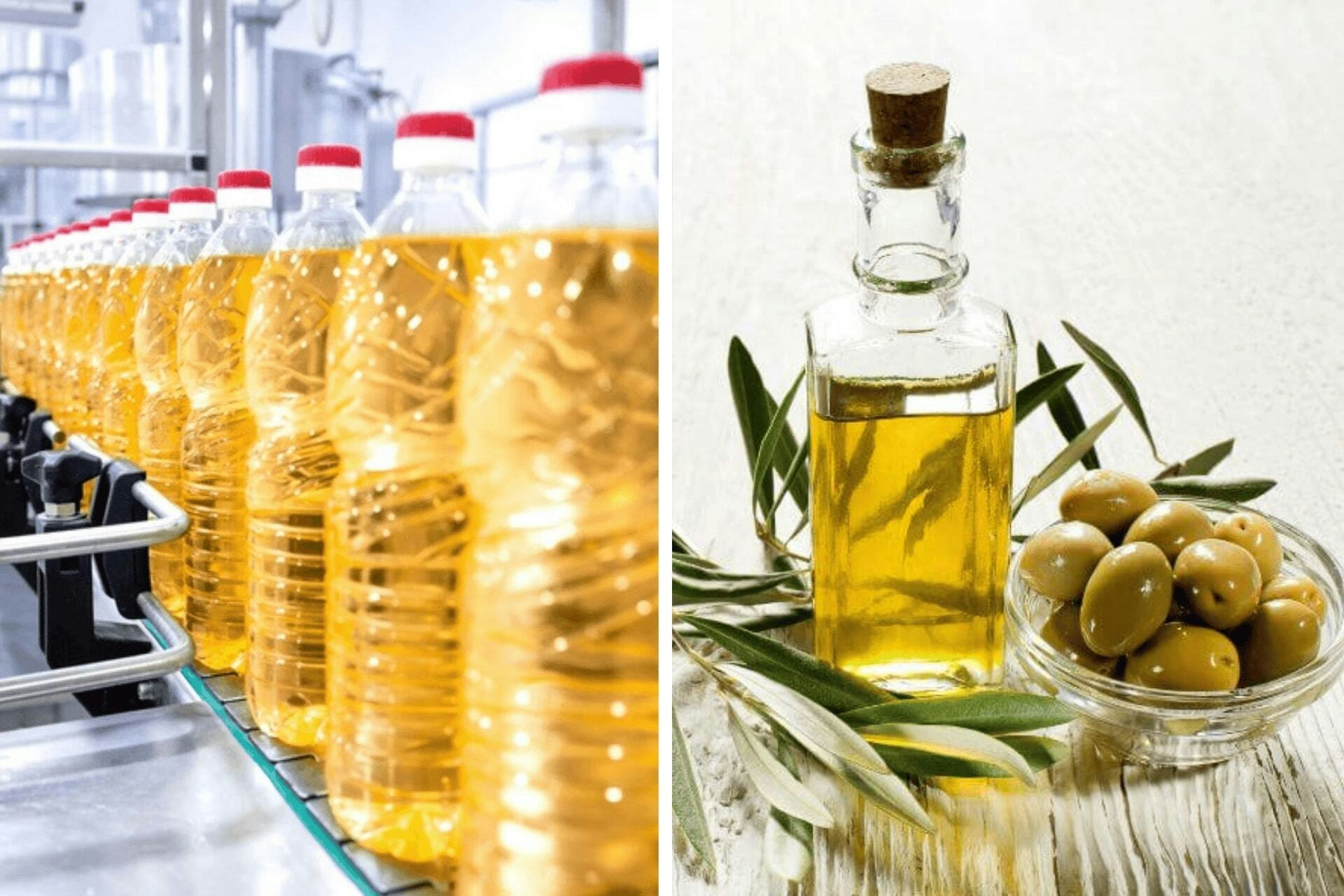Sesame oil is known for its distinct nutty flavor that enhances a wide variety of dishes, from Asian stir-fries to Middle Eastern dips. It also contains natural compounds, including antioxidants, that contribute to its appeal.
Like other seed oils, the way sesame oil is extracted can influence its qualities. Cold-pressed sesame oil preserves more of its natural compounds, while high-heat or chemical processing may change its nutritional profile.
Because of these factors, sesame oil’s role in a balanced diet depends on how it’s sourced and used.
This article explains what sesame oil is, explores its potential benefits and considerations, and shares healthy ways to include it in your meals. We’ll also suggest an alternative option for those looking for different cooking oils.
What is Sesame Oil?
Sesame oil is a type of vegetable oil extracted from sesame seeds. It is known for its rich, nutty, and earthy flavor and versatility in cooking. It is commonly used in Asian, Middle Eastern, and African cuisines — both as a cooking oil and a flavor enhancer.
For example, in Korean cuisine, sesame oil is often used to season dishes like bibimbap and kimchi.
There are two main types of sesame oil. Light sesame oil, or untoasted sesame oil, is made from raw seeds and has a milder flavor. It is suitable for frying or sautéing. Toasted sesame oil, made from roasted seeds, has a deeper flavor. It is typically used as a finishing oil to enhance dishes like stir-fries, soups, and salads ❶.
Sesame oil also contains natural compounds, including antioxidants such as sesamol and sesaminol. Historically, it has been used in traditional medicine practices for various purposes, although modern research is still limited and more studies are needed to fully understand its health effects.
Related: The Best Sesame Oil Substitute and Other Alternatives
Is Sesame Oil Good for You?
Sesame oil contains natural compounds such as lignans (including sesamin), phytosterols, and antioxidants like sesamol and sesaminol. Some studies suggest these compounds may have anti-inflammatory and other beneficial properties, though more research is needed to understand their full impact on health ❷❸.
Like other seed oils, the way sesame oil is processed can affect its nutritional quality. Some methods, such as high-heat extraction or chemical processing (for example, using solvents like hexane), may reduce beneficial compounds and alter the oil’s composition.
Cold-pressed (which is extracted without high heat) or minimally processed sesame oil tends to retain more of its natural antioxidants and flavor compared to heavily refined versions.
Overall, sesame oil can be enjoyed as part of a balanced diet when used in moderation. Choosing higher-quality, less-processed varieties may help you get the most flavor and potential benefits while avoiding some of the drawbacks of highly refined oils.
Related: Your Ultimate Seed Oil-Free Grocery List
Healthy Ways to Include Sesame Oil in Your Diet
The key to incorporating sesame oil into your diet is balancing its rich flavor and potential health benefits with mindful usage.
Follow these tips so you can enjoy sesame oil's advantages:
Use as a finishing oil
Drizzle toasted sesame oil over cooked dishes like stir-fries, salads, or soups to add depth of flavor without exposing it to high heat. This will enhance your dish with a rich, nutty taste while preserving the oil’s beneficial antioxidants and bioactive compounds.
Add to dressings and dips
Sesame oil makes a great base for salad dressings or dipping sauces. Combine it with ingredients like soy sauce, vinegar, and honey for a tasty and nutritious dressing that adds flavor without the need for extra fats!
Mix with a heat-tolerant oil
To use sesame oil in high-heat cooking, like frying or sautéing, mix it with a more heat-stable oil such as algae cooking oil. This combination allows you to benefit from sesame oil's unique flavor while preventing degradation from high heat.
If you're concerned about using sesame oil for high-heat cooking, consider replacing it with Algae Cooking Club's chef-grade algae cooking oil. With the highest smoke point of 535°F, this versatile oil is perfect for searing, roasting, baking, grilling, and even making desserts, dressings, and dips.
Related: What are High Heat Cooking Oils?
Incorporate into smoothies
Its subtle nutty flavor pairs well with ingredients like bananas, chocolate, or tropical fruits such as mango and pineapple. For example, a sesame oil-infused banana-chocolate smoothie or a mango-coconut blend can offer a unique taste while providing antioxidants.
Use in homemade snacks
Incorporate sesame oil into homemade granola, roasted nuts, or roasted vegetables. You can also drizzle it over popcorn for a nutty twist or use it in energy bars for added richness!
The Bottom Line
Sesame oil is a versatile and flavorful addition to many dishes, and it contains natural compounds that contribute to its appeal. Still, it’s best used thoughtfully — for example, choosing minimally processed varieties and being mindful of how it’s used in cooking.
For those who want a versatile option in the kitchen, Algae Cooking Club's chef-grade algae cooking oil is another choice to consider. It’s well-suited for high-heat cooking and offers a neutral flavor, making it an easy swap in a wide range of recipes.




